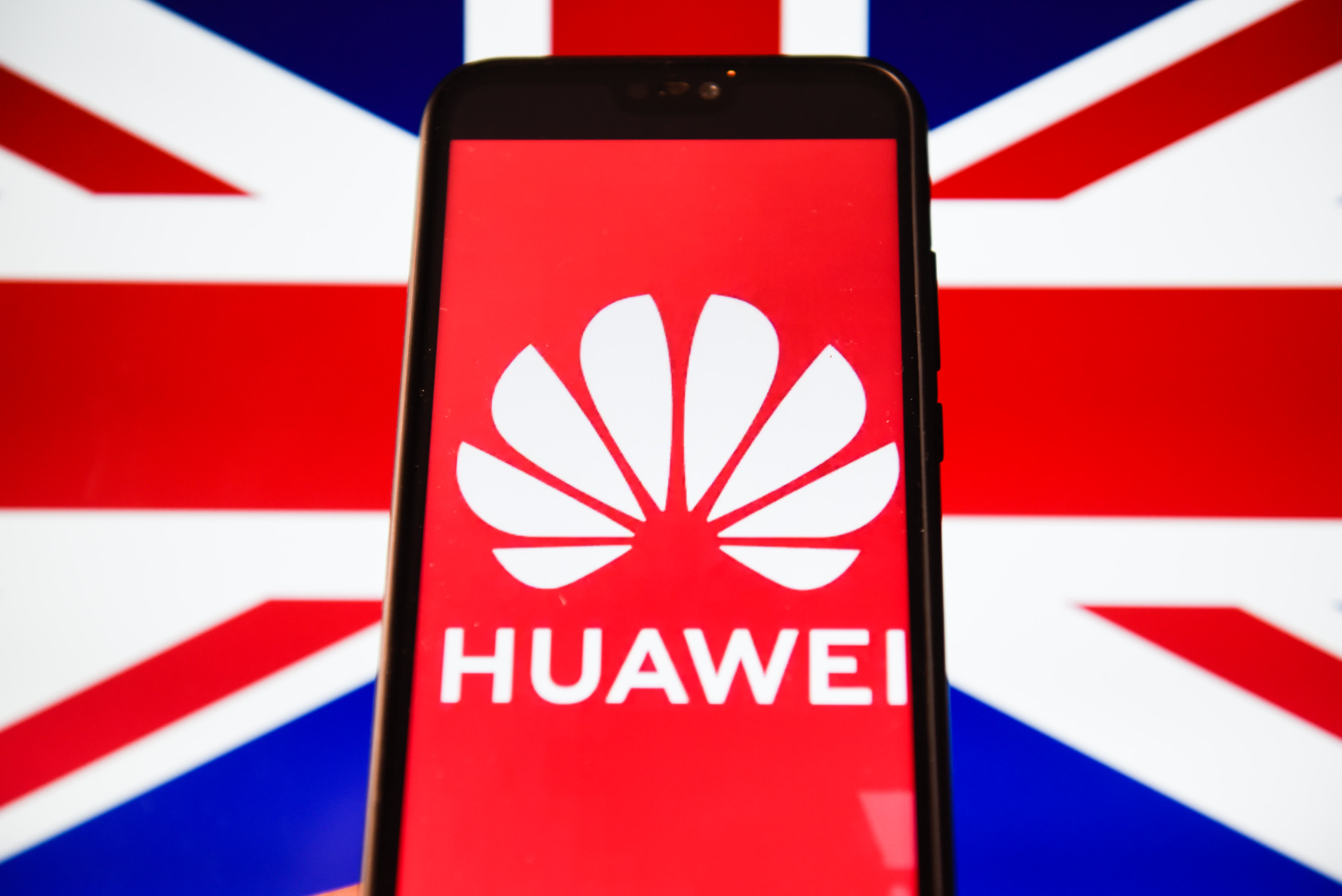Huawei’s logo is seen on a smartphone in front of a laptop displaying the U.K. flag.
Omar Marques | SOPA Images | LightRocket via Getty Images
Huawei’s close relationship with Britain is in jeopardy once again and the Chinese firm’s 5G telecoms equipment might disappear from U.K. mobile networks altogether in as little as three years.
The U.K.’s National Cyber Security Center (NCSC), which is part intelligence agency GCHQ, launched an emergency review of Huawei’s role in the U.K. on Sunday after the U.S. introduced new sanctions on the company last week.
“The security and resilience of our networks is of paramount importance,” an NCSC spokesperson said in a statement. “Following the U.S. announcement of additional sanctions against Huawei, the NCSC is looking carefully at any impact they could have to the U.K.’s networks.”
The U.K. is a major market for Huawei and there would be significant implications on some British mobile carriers if the government were to ban the technology, as some have already invested in Huawei’s 5G equipment.
In January, the U.K. government resisted pressure from the U.S. to block Huawei completely from its 5G networks. Instead, it said it would limit Huawei to 35% of British 5G network supply. However, it banned the use of Huawei’s equipment in the all-important “core” of mobile networks where data is stored and routed.
Huawei Vice President Victor Zhang said in a statement: “Our priority remains to continue the rollout of a reliable and secure 5G networks across Britain. We are happy to discuss with NCSC any concerns they may have and hope to continue the close working relationship we have enjoyed for the last ten years.”
The U.S. is in a long-running battle with Huawei. Policymakers say they’re concerned that the company’s technology could be used for cyber espionage and President Donald Trump has been urging leaders of other countries, particularly those in the so-called Five Eyes alliance, to avoid using Huawei at all costs.
The Shenzhen-headquartered company has always insisted that it does not spy on behalf of the Chinese government and it has accused the U.S. of xenophobia.
Last Friday, The Telegraph newspaper revealed that Prime Minister Boris Johnson was looking at how to reduce Huawei’s role in Britain’s 5G networks, reporting that he has instructed officials to draw up plans that would see China’s involvement in the U.K.’s infrastructure scaled down to zero by 2023.
In response to the story, Zhang told The Telegraph: “We’ve seen the reports from unnamed sources which simply don’t make sense. The government decided in January to approve our part in the 5G rollout, because Britain needs the best possible technologies, more choice, innovation and more suppliers, all of which means more secure and more resilient networks.
“As a private company, 100% owned by employees, which has operated in the U.K. for 20 years, our priority has been to help mobile and broadband companies keep Britain connected, which in this current health crisis has been more vital than ever. This is our proven track-record.”
Ministers later told The Times that it will be “impossible” to remove all of Huawei’s technology from Britain’s mobile networks by 2023. Instead, they reportedly say they are discussing plans to prohibit the purchase and installation of new equipment from 2023.
The U.K. government was not immediately available for comment when contacted by CNBC.
U.S. sanctions
The new U.S. sanctions could ultimately make it impossible for the U.K. to use Huawei’s technology as it planned to in 5G networks, which are in the process of being rolled out and expanded.
The sanctions aim to cut off Huawei’s access to chips. Under the rules, foreign manufacturers using U.S. chipmaking equipment must get a license before being able to sell chips to Huawei.
The sanctions will hit Taiwan’s TSMC, which supplies over 90% of Huawei’s smartphone chips. Huawei has looked to diversify its chip production to Chinese firm SMIC. However, analysts said that SMIC does not have the expertise or capacity to produce all of the chips Huawei requires.
Huawei said earlier this month that it “categorically opposes” the U.S.’s chip regulation.
“This decision was arbitrary and pernicious, and threatens to undermine the entire industry worldwide. This new rule will impact the expansion, maintenance, and continuous operations of networks worth hundreds of billions of dollars that we have rolled out in more than 170 countries,” the company said in a statement.
Despite the U.K. government preventing the use of Huawei’s equipment in its “core” networks, some still weren’t happy. A group of 38 Conservative MPs called on the government to reduce Huawei’s market share to zero as they fear its technology compromises national security. In March, the rebels backed an amendment to end Huawei’s participation in U.K. 5G mobile networks by the start of 2023, but they lost.
Additional reporting by Arjun Kharpal.

